Periods: Menstrual cycle shame 'hurts mental health'
- Published

Molly Fenton set up the Love Your Period campaign while she was still in school
Shame about periods can have a detrimental impact on women's mental health, campaigners have said.
A woman whose menstrual symptoms were confused with depression has devised her own social prescribing, external course.
Meanwhile, two sisters behind the Love Your Period, external campaign said work was needed to eliminate the taboos surrounding periods for young women.
Molly Fenton said embarrassment linked to girls' periods could affect them "emotionally, physically and mentally".
"You can teach someone the science and biology, but no-one tells you that sometimes period pain is really bad, or that excessive cramps aren't normal," she added.
"It's often something we might wish our parents had told us - but it's not spoken about in all families either."
The 20-year-old from Cardiff started Love Your Period while she was still in school, earning herself a St David Award in 2021, external and a place on the Welsh government's period stigma roundtable.
She and her 16-year-old sister Tilly have since set up "big sister talks" with primary school children.
"We wanted to normalise conversations around periods and make them feel more comfortable, especially when they're younger," said Tilly.
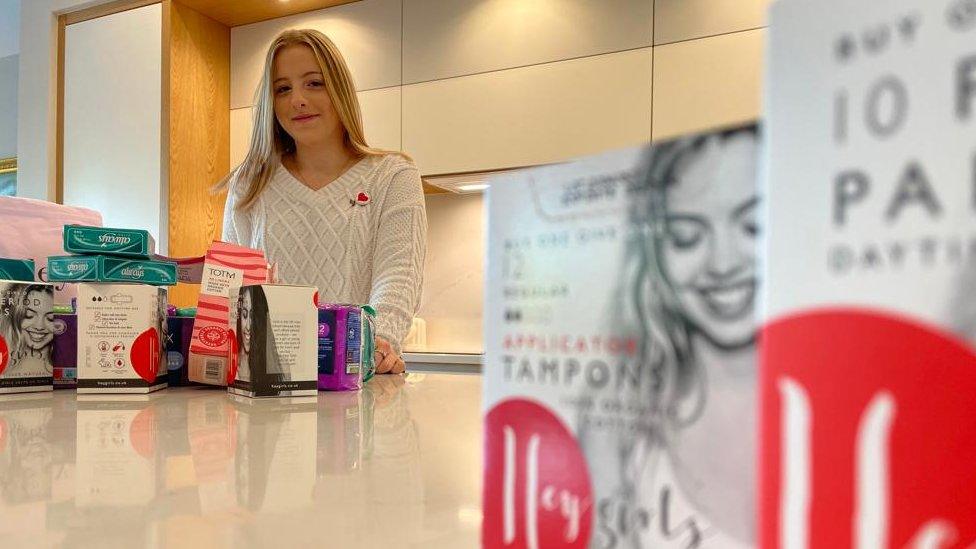
Tilly Fenton and her sister have been working with schools to improve the availability of free sanitary products
Tilly said they have had some resistance to their work.
"We were in town campaigning back in 2019 and a lot of people were verbally attacking us. They didn't like the fact we were talking about periods," she said.
"I think people's attitudes are changing and I'm glad that's happening - that's the whole point of what we were doing in the first place, so people can finally talk about it."

Tilly and Molly have been working together on the campaign
"I remember being shown in school three times how to put a condom on, but never told how to use a tampon, or about female contraception," said Molly.
"If some of us have to go past the comfortable stage and shout about it to raise awareness and make it normal, then that's what we'll do."
They hope their work will lead to a better understanding of conditions such as endometriosis, external and premenstrual dysphoric disorder, external.
Kate Shepherd Cohen said she was on the brink of taking anti-depressants until she realised her feelings were linked with her menstrual cycle.
Learning to understand it meant she no longer added "layers of suffering" to her physical pain.
She said she was embarrassed to only make the link at the age of 35, which led to "a burning sense of injustice" that other women were also unaware.
Ms Cohen also said that alternatives to anti-depressants were not suggested.
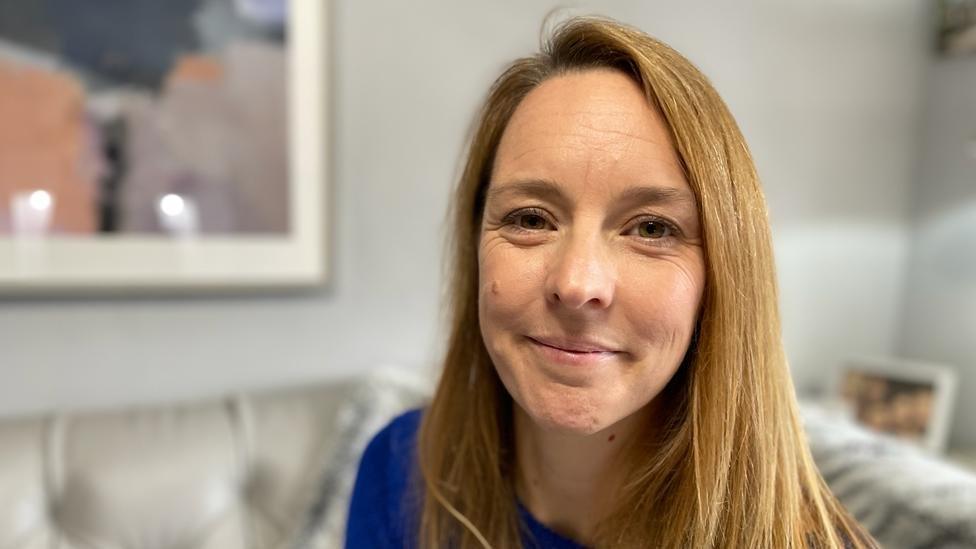
Kate Shepherd Cohen says it is "not acceptable for anyone to not be aware of the menstrual cycle and the impact that it has on society"
Originally from New Inn, Torfaen, but now living with her family in Cornwall, she has devised a course available on social prescription, external - a way of connecting people to community support or other non-clinical services.
Since charting the days of her cycle - with day one as the first day of her period - she has learned to identify patterns and how they affect everything from work to relationships.
"Today is my day seven," she said.
"Now I realise that, actually day seven is a day that I feel pretty empowered because I'm just coming back into myself after my menstrual phase.
"It always has the same qualities and that's been a huge surprise to me. Because then not only does day seven have its own qualities but day 12 does, day 18 does, day 28 does. And I found myself understanding and coping so much better."
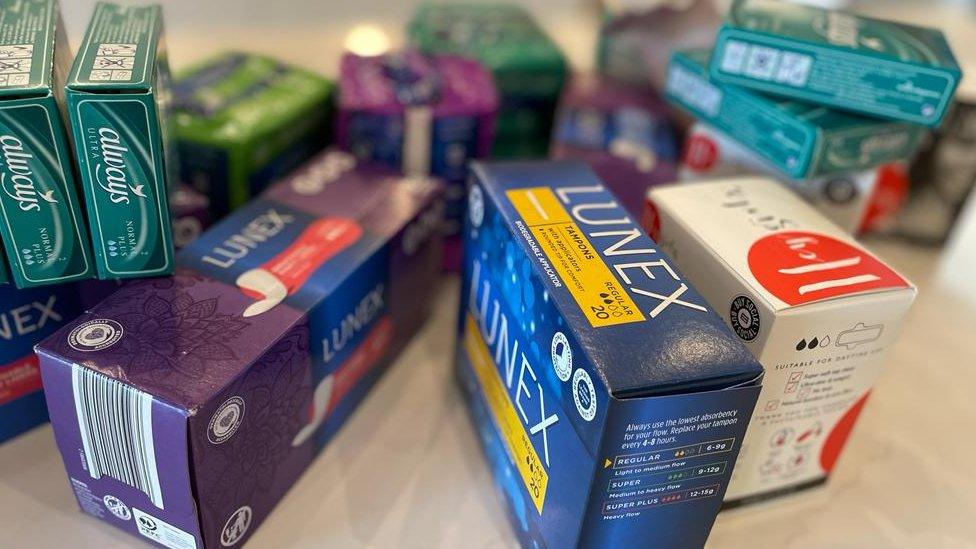
Love Your Period now campaigns on a number of women's health issues
She said it had also shifted the way she views her periods and helped her understand "the difference between pain and suffering".
"The pain is not always possible to take away," Kate added.
"But I was adding many layers of suffering to the physical sensation. 'Oh, I'm not a very good mother at this time, I can't do the things I want to do'.
"I've changed my diary around it and I'm able to not be too hard on myself."
As well as reducing the stigma of talking about the menstrual cycle, she said the course aimed to better equip women with evidence if they need to seek medical advice - reducing wasted GP appointments and waiting lists.
She said: "I know from my experience the impact it was having on my family life and my working life.
"I really wanted a pill to take away the pain that I was experiencing around my cycle. There were days where I didn't want to wake up.
"I felt like there was nowhere to turn, I couldn't face the world and I think in those moments I really wanted to just do anything to take that away."
A Welsh government spokesperson said: "Menstrual well-being and learning about the menstrual cycle is mandatory within the new Curriculum for Wales. This includes learning about where to get further information and support.
"It is important that learning about menstrual well-being is not simply a 'one-off lesson', which is why the Relationships and Sexuality Education (RSE) Code sets out that it should be taught over time as children grow.
"We have invested a further £500,000 in professional learning to support staff with the new curriculum's requirements, including specific support for schools to deliver RSE."
- Published10 February 2023
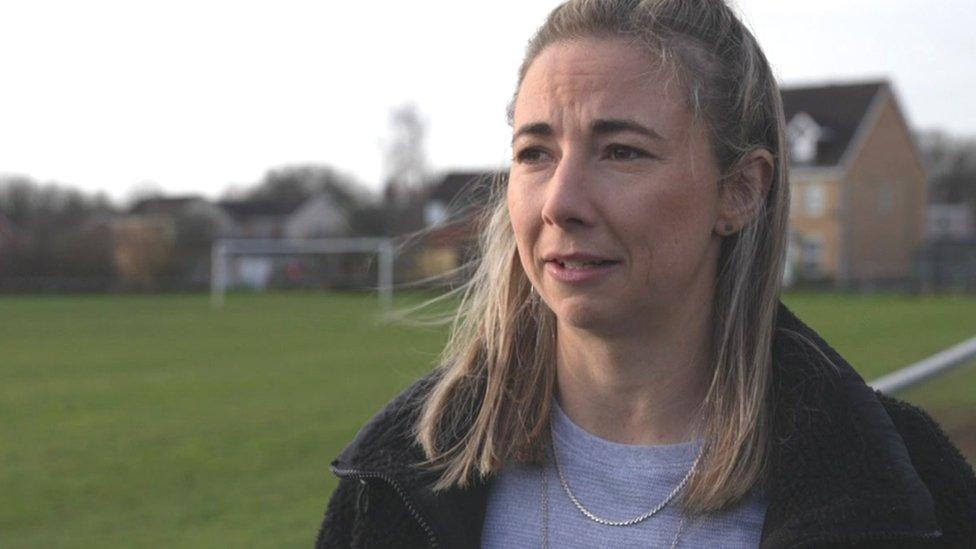
- Published21 September 2022
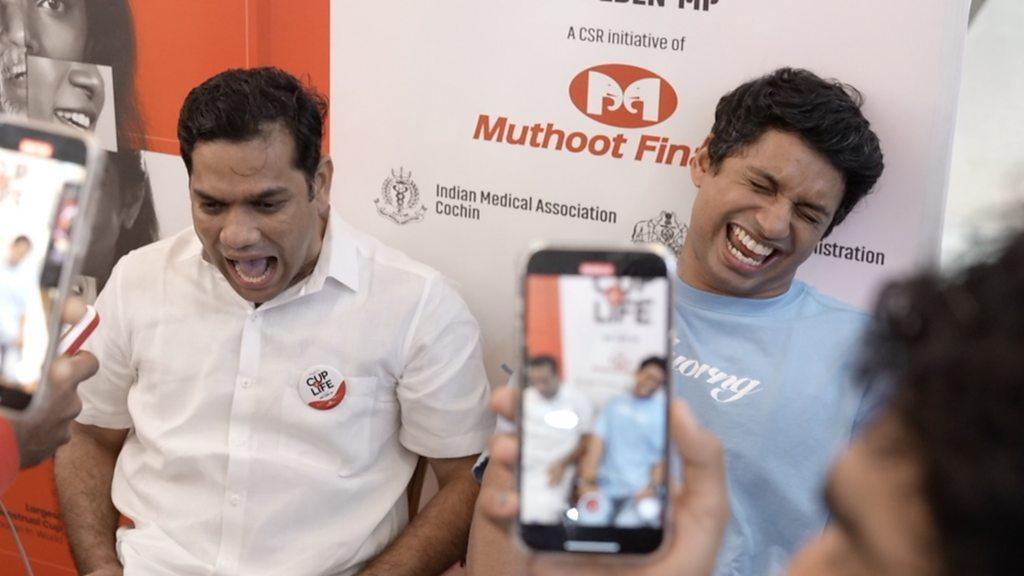
- Attribution
- Published19 August 2022
